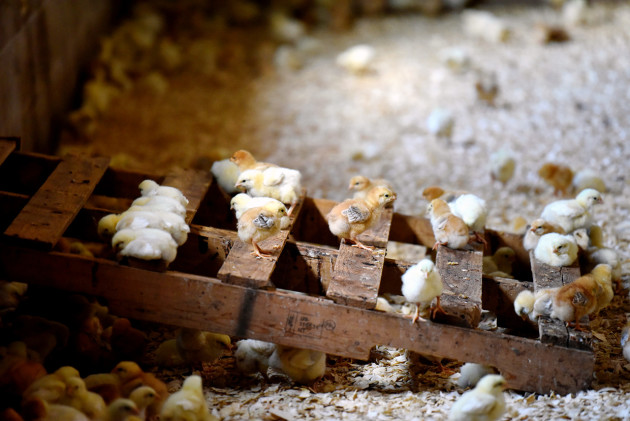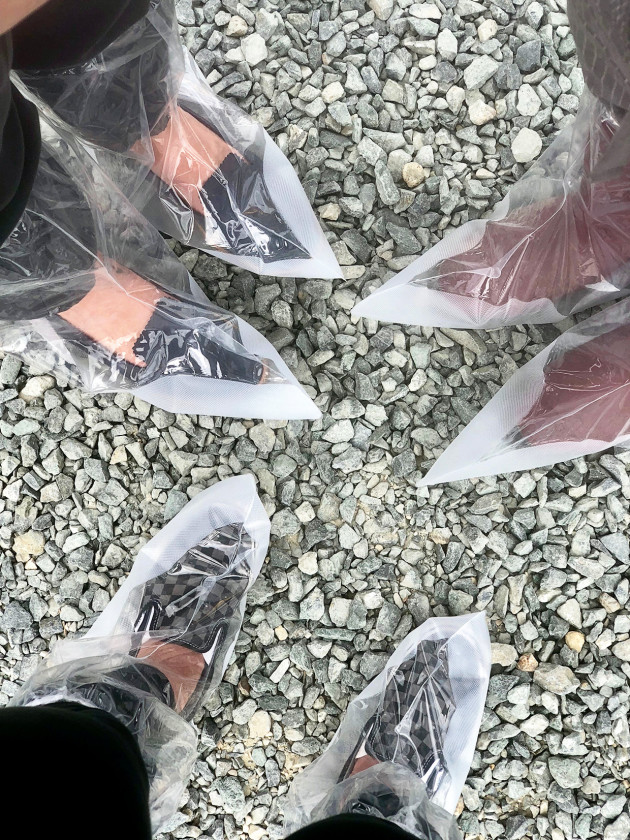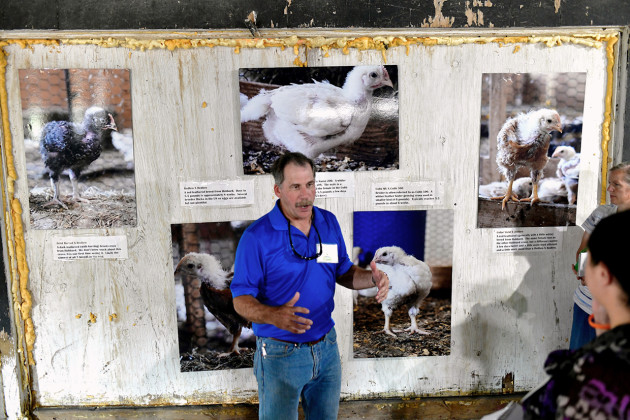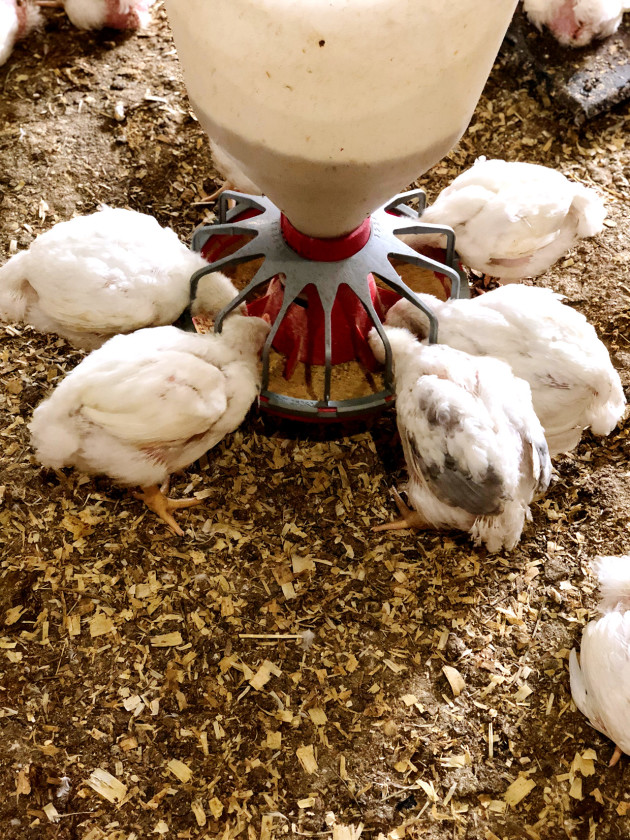**This is a sponsored post in collaboration with Perdue. All thoughts and opinions are my own.
I flew into Maryland on a red-eye and that was on the heels of a previous red-eye from California to New York (less than 24 hours before) for a four-hour event that ended in a crazy cab ride from Koreatown to JFK. After a panic-sprint from one side of gate C to the other, I made it with just enough time to realize I had no way of getting from Dulles Airport out to Salisbury, Maryland — a three-hour ride starting at midnight.

Photo credit: Matt Roth
My point is, I wasn’t focused on the next day’s event. That is until I arrived at the farm—still blurry-eyed from a lack of sleep. I told Matt, “Good thing, I didn’t miss my flight” while slipping the plastic covering over my shoes to protect the chickens, “because we are finally going to see first-hand why Perdue is leading the industry with animal care”.

Keep in mind this is Perdue’s research farm, so there are various types being studied, with varying activities all with same end goal—that is, to create a better chicken atmosphere, one that provides a comfortable environment where chickens can express their animal behavior and live a healthy life.

Photo credit: Matt Roth
With that in mind, Perdue focuses on five core freedoms for its chickens:
- Freedom from hunger and thirst
- Freedom from discomfort
- Freedom from pain, injury or disease
- Freedom to express normal behavior
- Freedom from fear and distress
What do all these things point towards? For Perdue it’s about Commitments to Animal Care—a revolutionary change in how they raise their chickens. It’s a shift from thinking about what chickens need to what chickens want.
I know, mind blowing.
The next day after the farm visit was the annual Animal Care Summit that brought together advocates, a customer panel and farmers to discuss, explore and share the latest animal care improvements and commitments to future advancements. They had speakers from: Compassion in World Farming, Farm Animal Protection and Mercy for Animals, all organizations that lead the effort to improve animal welfare policies and practices in measurable ways. The customer panel included Wakefern Food Corp., the largest retailer-owned cooperative in the US, a cooperative that independently owns and operates 350 supermarkets. Another panel featured Perdue farmers, the stewards of Perdue’s vision and values.

Photo credit: Matt Roth
The biggest takeaway after listening to all the speakers and panels discuss providing better welfare for animals, while producing quality food, and protecting the environment was:
Where your food comes from matters, but how your food makes it to your table matters even more.
This just makes me even more proud to align myself with a brand with this much integrity and soul. A brand that also has committed itself to:
- Feeding all their chickens a vegetarian diet—no animal by-products
- All Perdue chickens follow a no-antibiotics-ever protocol
- To help ensure the chickens stay healthy, Perdue uses natural supplements like oregano and thyme

Now that you are in the know, which poultry brand are you going to put in your cart the next time you go shopping?
I so don’t trust this information. Having worked in the corporate arena in training and development with a little marketing thown in. In my experience iIt all comes down to the lowest folks in the company who implement policy on a daily basis. The one who fills in for vacations, newbies Yes managers are to train and workers supervised. But other “fires” in the work setting prevent this . And how much they teach…what they value. It always how little information must be shared before they can work on the “floor.”
So you can write what you want. and conduct all the training. In my opinion its a crap shoot. But I like the ideas espoused. Then I wonder how the corporation justifies shooting up the processed meat with up to 10% solution and method for preparing chicken for market, trying to avoid salmonella.
Pretty much chicken doesn’t taste like chicken anymore thus the plethora of marinate recipe to mask the lack of flavor. We seem to be eating texture not taste with an effort to finally stop using antibiotics to enhance growth now that they dangerously do not work well on people.
Thanks so much for sharing all the info from your trip with us Naomi. I read a book a few years back called “The Ethics of What We Eat: Why Our Food Choices Matter” by Peter Singer and Jim Mason. Shocking and eye-opening! Everyone should know more about what they eat and how it made it to our plates. Thanks again for sharing!
I applaud Perdue’s efforts to make chickens happier during their growing cycle. Babs above is a little off base on some of her comments though. In a past career I was also involved with poultry, but I was on the floor, not in the training or marketing department and I was with a company other than Perdue. The activities are heavily monitored so as not to allow the weakest links in the chain to jeopardize the entire process. Her comment about injecting 10% solution into birds during processing to control salmonella is not accurate either. The process for controlling salmonella is done throughout the process, not by injecting solution into birds. The intake of moisture occurs during the chilling process necessary to bring the birds down to below 40 degrees within the allotted time after slaughter. She has the right to state her opinions and to share her knowledge, but I would be remiss if I did not attempt to correct her misstatements.